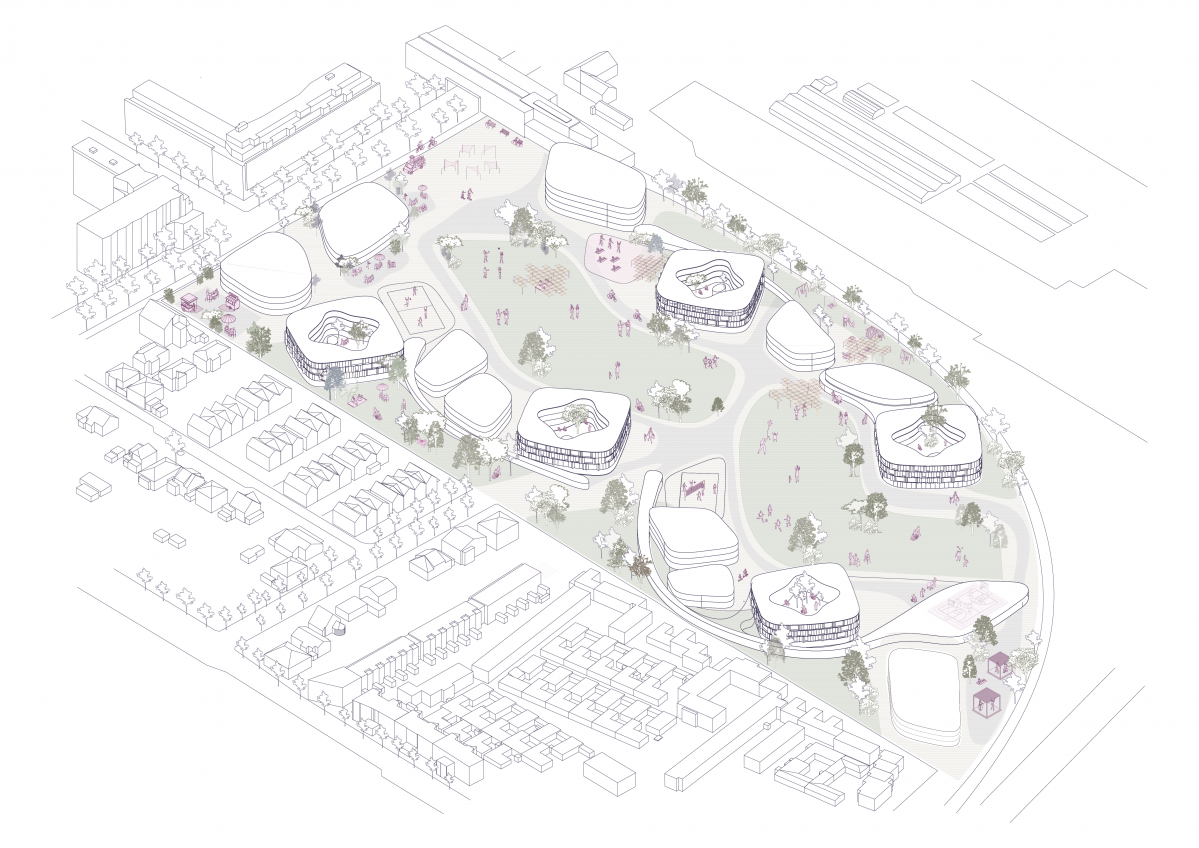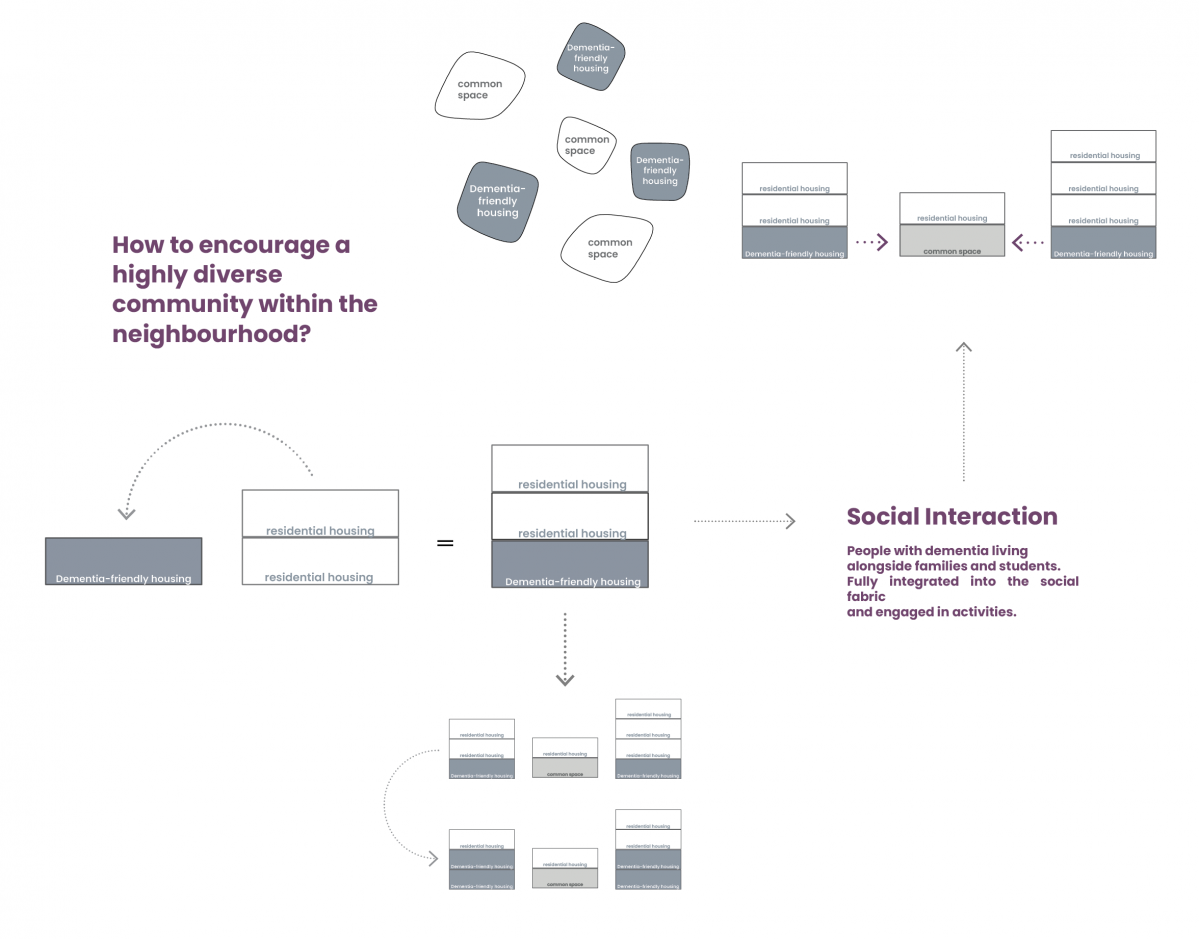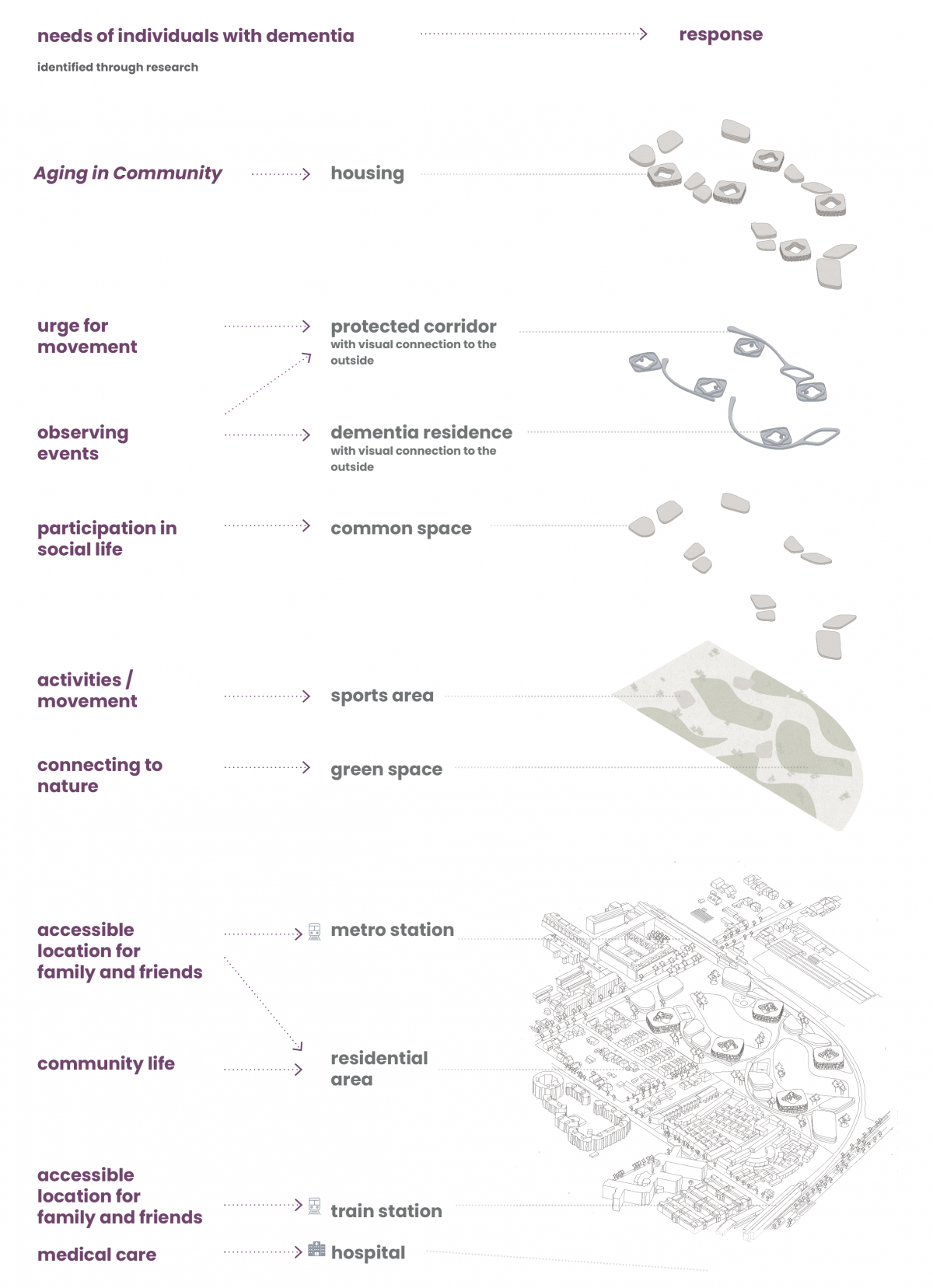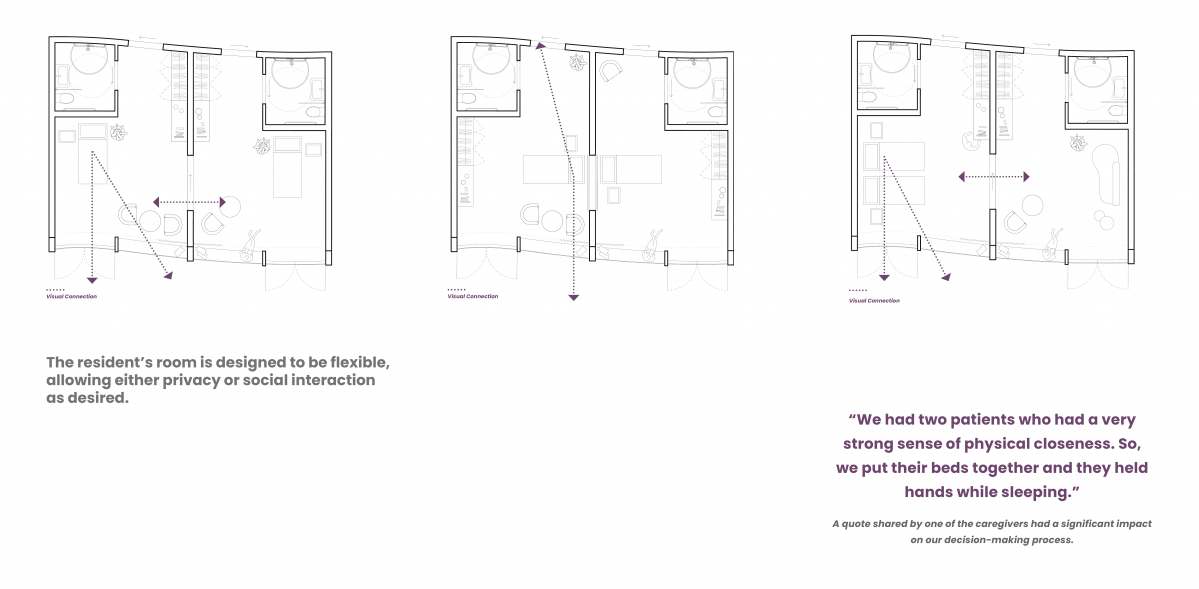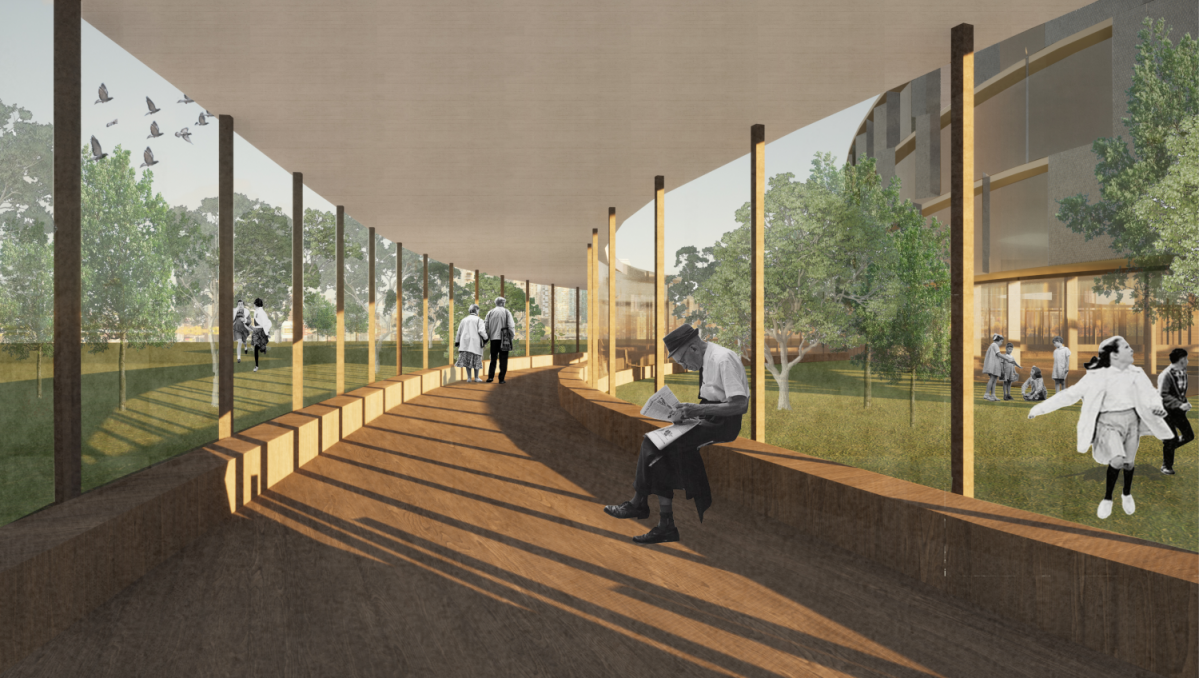Healthcare Environment Award 2023 für Helen Herget und Anna Kubiak
Aging in Community
The world’s population is experiencing a demographic shift, with a steadily rising number of people being diagnosed with dementia each year. As a result, dementia will play an increasingly important role in society and social policymaking.
The project “Aging in Community” addresses the needs and desires of people with dementia architecturally, considering their symptoms. Due to the increase in diagnoses of dementia and the decreasing availability of care, the objective is to create a new care system and facilities that can cope with this development. The area comprises mixed-use complexes, allowing residents to age within their community.
In addition, the chosen site enables the residents to be close to healthcare facilities while being well connected to their loved ones who may live in the area or can easily reach it by public transport.
On the ground floor, the dementia units and common areas create a well-connected environment, with housing units on the upper floors. Being further expandable to the upper floors, the structure of the facilities is adaptable to future development. People with mild symptoms can benefit from the dementia infrastructure by being close to and receiving support from the care environment, while those with advanced symptoms can live in the dementia facility.
The design was developed simultaneously with a research paper, “Architektur als Mittel zur Förderung sozialer Interaktion bei Demenzerkrankten” in the Wahlseminar Gebäudelehre - Healthcare Architecture Research supervised by Assistant Prof. Maja Kevdzija, which investigated the importance of social interactions in the lives of people with dementia and how architectural solutions can respond to the social behavior of residents.
The research included literature reviews on dementia, covering symptoms, disease progression, and spatial needs in residential care facilities. However, the five interviews and three visits to dementia institutes were the most influential and provided valuable insights that significantly impacted the design decisions. First-hand experience of how people with dementia perceive their living space and the challenges that residents and their care partners face in their everyday lives served as the primary inspiration for the design. The main results showed that social connections help to prevent dementia and improve the quality of life of individuals who already have symptoms.
By creating small communities with shared spaces, the architectural scale addresses the need for community, connection to nature and independence. Residents can choose to live in single or shared rooms that either face the common area for more social interaction or face the green courtyard to connect to a quieter space. When residents want to expand their social interaction, they can connect throughout the neighborhood. Thus, the design emphasizes opportunities for residents to socialize in different settings. The covered green spaces provide a shared sensory experience of nature throughout the year.
Another critical aspect of the concept is the integration of protected yet accessible movement and connection to everyday life and nature. This is achieved through a glazed corridor that links the common areas with the dementia housing. Residents can move independently at all times while ensuring their safety and witness or participate in the community life created by the mixed-use complexes.
In summary, the concept developed creates a dementia-friendly environment within the city, allowing residents to gradually adapt according to their needs and the progression of their condition. In addition, the design choices aim to provide a soothing environment for the residents and create an efficient and supportive space for the caregivers.
“Brilliant, beautiful, thoughtful, and well-informed by research were just a few of the accolades jurors bestowed on this entry.” - excerpt of the jury statement for the first prize of the Student Healthcare Environment Award 2023.

